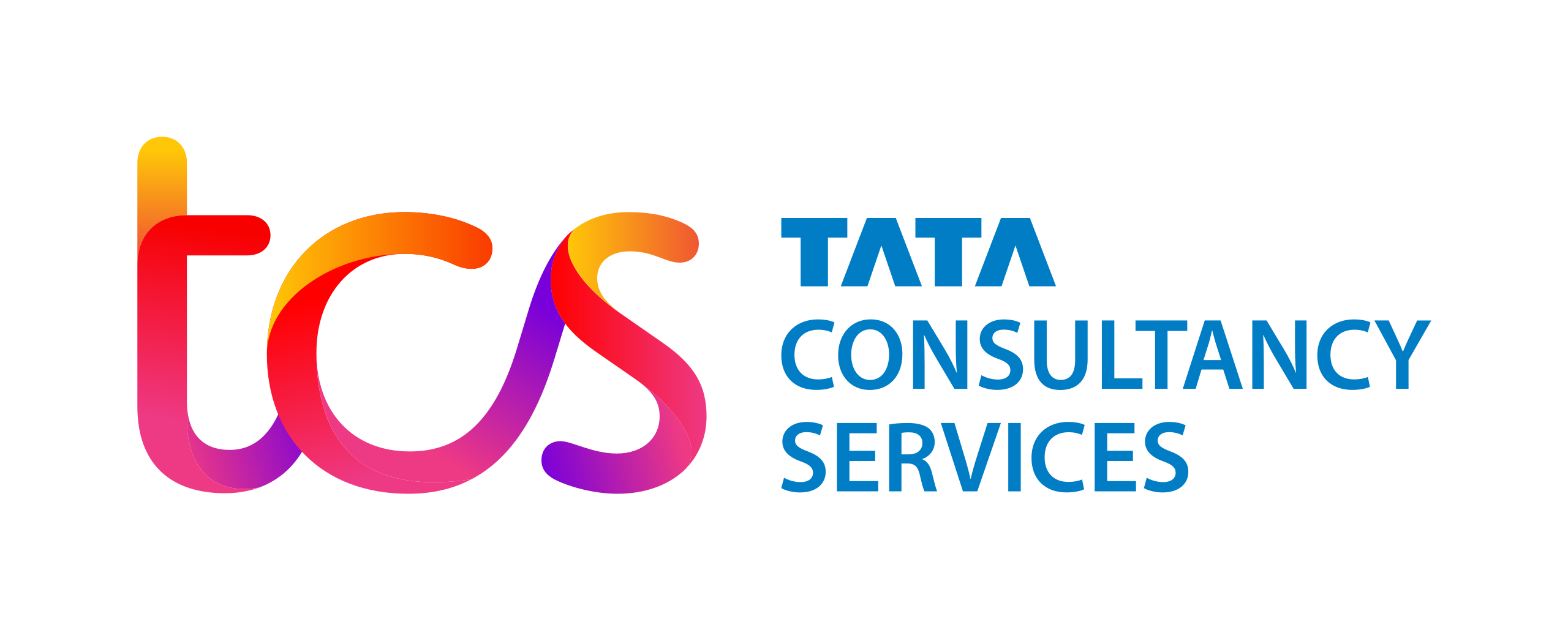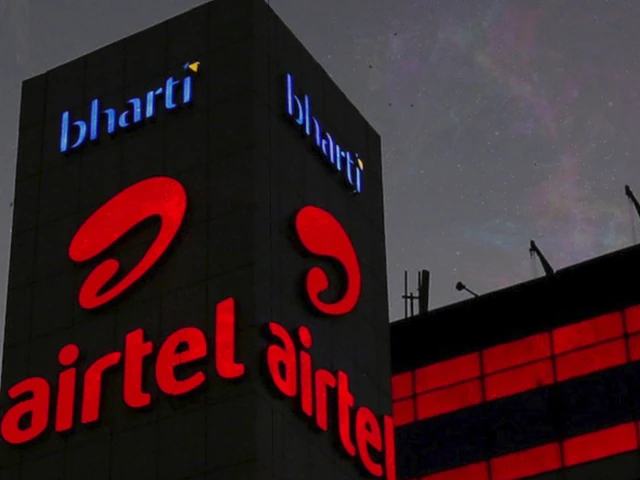Top 10 Best Trading Companies In India In 2023
Top 10 Best Trading Companies In India In 2023

INTRODUCTION
2023 is an exciting year for trading companies in India. With the nation’s economy growing steadily and the e-commerce sector flourishing, India has become a central global trading hub.

In 2023, many Indian companies want to leverage their competitive advantages and capitalize on their large domestic market to expand into global markets. The government is also introducing new policies and incentives to encourage companies to increase their exports.
Indian trading companies have the advantage of access to a wide variety of products and services at competitive prices due to the country’s diverse population and its abundant natural resources.
Additionally, the Indian government’s focus on infrastructure development and favourable taxation and trade policies make it an attractive destination for foreign investors and traders.
In 2023, India is poised to become an even more significant global trading partner as the government continues to create an environment encouraging international trade and investment.
Companies can now access international markets, with more trade deals being negotiated between India and other countries. Many Indian companies are also diversifying their operations and expanding their presence in the global market by investing in foreign markets.
As a result, the number of trading companies in India is expected to grow significantly in the coming years. With the right strategies and support from the government, this could lead to increased opportunities for Indian businesses and improved economic growth for the country.
IMPORTANCE
In 2023, trading companies in India will continue to play a pivotal role in the country’s economy. Trading firms help bridge the gap between domestic production and the global market, allowing Indian businesses to access a broader range of products and services at competitive prices.
The opening up of new markets and the emergence of new technologies will also likely result in increased opportunities for trading firms in India.

These companies are expected to benefit from rising demand for imported goods and locally produced goods that need to be exported. For example, India’s agricultural sector is mainly dependent on imports, and trading firms can help facilitate these transactions.
Furthermore, India’s rapidly growing e-commerce sector could offer attractive prospects for trading companies.
Moreover, trading firms can assist Indian businesses in expanding their operations overseas by establishing links with international customers and suppliers. This can be done by setting up offices abroad or by facilitating online trading platforms such as Amazon, eBay, and Alibaba.
In addition, trading companies in India can help promote foreign direct investment into the country, as well as help Indian companies find new partners for joint ventures and other collaborations.
Finally, trading firms in India will remain essential players in the world of finance and banking. This is because they are often called upon to act as intermediaries in international transactions.
For instance, they may be involved in arranging loans, issuing letters of credit, and providing other financial services. As India continues to modernize its economy, trading companies will likely reap the benefits of these developments.
Here are the top 10 best trading companies in India in 2023
Reliance Industries – Reliance Industries Limited (RIL) is a Fortune 500 Indian multinational conglomerate company headquartered in Mumbai, Maharashtra. Founded by Dhirubhai Ambani in 1966 and incorporated in 1973, the company had annual revenues of around US$88 billion as of 2020. RIL operates across multiple industries, including retail, petrochemicals, refining, telecommunications, and media.
In the retail sector, RIL has subsidiaries such as Reliance Retail, which operates more than 12,000 stores across India with a presence in 7,000 cities making it the largest retail chain in the country.
Through its Jio mobile network, RIL is also one of the largest telecom operators in India and offers some of the lowest-priced data plans in the world. In the energy sector, RIL is India’s largest producer of petroleum products while its petrochemical division is the largest refinery in the country. The company is also involved in exploration and production of oil and gas fields in India and abroad.
RIL is a leader in digital innovation, having developed its own software platform, Jio Platforms, for mobile computing, artificial intelligence, analytics, and other services. This platform powers its subsidiaries and businesses, including Reliance Digital, Reliance Jio, and Reliance Fresh. Additionally, RIL has investments in many technology startups, including Ola Cabs, Saavn, Haptik, and Netmeds.
With its strong financial performance and focus on innovation, RIL has become the second-largest company in India by market capitalization and one of the most valuable companies in the world. It is also one of the largest employers in India, with over 1.60 million employees.
Tata Consultancy Services – Tata Consultancy Services (TCS) is one of the world’s leading IT services, consulting and business solutions organizations. Established in 1968, TCS has a presence in 45 countries with over 442,000 employees. TCS is part of the Tata Group, India’s largest multinational business group.

TCS offers a comprehensive range of services including Consulting, Business Solutions, Infrastructure Services, Application Development & Management and Business Process Outsourcing.
These services are delivered through innovative strategies and customer-centric approaches. With its global network of delivery centers and an emphasis on quality and cost effectiveness, TCS provides tailored solutions to meet the unique requirements of customers.
TCS also prides itself on its commitment to people. The company’s work culture focuses on creating an environment of learning and growth for its employees. It encourages employees to take initiative and develop new ideas, irrespective of their role or position in the organization. TCS promotes diversity and strives for gender equality by encouraging women to join the workforce.
Apart from providing IT services, TCS also plays a key role in corporate social responsibility initiatives such as education, health care and environmental sustainability. In addition, it has a strong focus on research and development, having filed over 3500 patents in the last few years.
Overall, TCS is an innovative and forward-thinking organization that is constantly striving to deliver world-class customer service and provide its employees with the resources they need to succeed. Its commitment to excellence and continuous improvement make it a leader in the IT services industry.
Infosys – Infosys is a global technology leader and a pioneer in the digital services space. Founded in 1981 by seven engineers, Infosys has grown to become one of the largest companies in India and one of the world’s leading providers of consulting, technology and outsourcing services.
Infosys helps its clients transform their businesses using advanced technologies such as cloud, artificial intelligence (AI), machine learning (ML), analytics, automation, and Internet of Things (IoT).
It also provides custom application development, enterprise resource planning (ERP) solutions, systems integration, data management, infrastructure management and other IT services.
Infosys is committed to delivering innovative products and services to its customers. The company leverages its engineering expertise, global delivery model and agile methodology to help clients move their businesses forward.
Its services include strategies, architectures, design, implementation and operations, and are tailored to meet the diverse needs of large businesses, small- and medium-sized enterprises (SMEs), and public sector institutions.
Infosys also offers a variety of business solutions, such as enterprise application integration, enterprise mobility, enterprise security, enterprise analytics and collaboration, customer relationship management, and enterprise resource planning.
The organization also provides an array of digital transformation solutions, such as artificial intelligence (AI), blockchain, big data, and DevOps.
Infosys is recognized for its commitment to sustainability, innovation, and workplace diversity. The company holds several awards for its corporate social responsibility initiatives and is a member of the World Economic Forum’s Global Agenda Council on Information and Society.
It also invests in education and research to foster an environment of continuous learning and development.
HDFC Bank – HDFC Bank is a leading private sector bank in India, established in August 1994. With a network of 5,474 branches across 2,769 cities and towns and over 11,000 ATMs all over the country, HDFC Bank is one of the largest banking networks in India.

The bank offers a wide range of services including personal banking, corporate banking, business banking, rural banking, international banking, and more. HDFC Bank provides customers with a variety of banking products and services such as retail banking, commercial banking, mortgage loans, car loans, credit cards, debit cards, foreign exchange services and more.
The bank also provides digital banking services like net banking, mobile banking, UPI and digital wallets. HDFC Bank has been consistently ranked among the top three banks in India for the past few years. It has received several awards and recognitions for its service quality, customer experience, and innovation.
The bank is committed to providing its customers with world-class banking services at competitive rates. HDFC Bank is focused on customer satisfaction, technology and innovation, and has always been ahead of the curve when it comes to introducing cutting-edge banking solutions.
ICICI Bank – ICICI Bank is a leading private sector bank in India, headquartered in Mumbai. It offers banking services across retail, corporate and investment banking. ICICI Bank has over 5900 branches and 16,650 ATMs spread across the country.
ICICI Bank’s vision is to become the preferred financial services provider in India by providing its customers with easy access to quality products and services at competitive prices.
ICICI Bank provides customers with a wide range of banking services, including deposits, loans, investments, insurance, card services and foreign exchange services. Customers can access these services through internet banking, mobile banking, branch banking and ATMs.
ICICI Bank also offers a range of payment solutions such as online payments, UPI, NEFT and RTGS. The bank also provides a variety of credit cards and debit cards that customers can use to make purchases and withdraw cash. ICICI Bank also provides a range of savings accounts, fixed deposits and mutual funds to help customers save and invest.
The bank also has various schemes and offers to help customers meet their financial goals. With its commitment to customer service and technology innovation, ICICI Bank stands out among the top private-sector banks in India.
Bharti Airtel – Bharti Airtel Limited, also known as Airtel, is a global telecommunications company with headquarters in New Delhi, India. Founded in 1995 by Sunil Bharti Mittal, the company has grown to become one of the largest mobile phone operators in the world, with over 330 million customers across 20 countries.
)
Airtel provides mobile voice and data services, fixed line and broadband, digital TV, and other services. The company operates through four business units: India, Africa, South Asia, and Bangladesh.
In India, Airtel is the largest mobile network operator, with a market share of about 33%. It has over 300 million users in the country and offers both prepaid and postpaid services.
It also provides a range of value-added services such as music streaming, sports streaming, gaming, and more. In addition, Airtel operates a large number of retail outlets throughout the country, making it easier for customers to purchase devices or recharge their accounts.
As an international telecoms player, Airtel has operations in over 15 African countries, including Nigeria, Ghana, Tanzania, Kenya, Uganda, and Rwanda. It is the second-largest operator in the region, with over 70 million subscribers. Airtel provides both prepaid and postpaid services, as well as a range of value-added services such as mobile banking, online money transfers, and mobile payments.
In South Asia, Airtel is the largest mobile operator, with over 100 million subscribers in Bangladesh, Sri Lanka, and Nepal. It offers both prepaid and postpaid services and value-added services such as mobile banking, online money transfers, and mobile payments.
In addition, Airtel has operations in five countries in the Middle East and North Africa, including Bahrain, Egypt, Jordan, Lebanon, and Oman.
Bharti Airtel is committed to providing innovative solutions that enable customers to communicate better and stay connected. It is continually investing in its infrastructure and technology to ensure that customers get the best experience possible. By investing in the latest technologies, Airtel is striving to provide the best services to its customers.
Axis Bank – Axis Bank is an Indian private sector bank headquartered in Mumbai, Maharashtra. It is the third largest private-sector bank in India offering a wide range of financial products.
The bank has more than 4,500 branches and over 13,000 ATMs across the country. Axis Bank offers services such as retail banking, corporate banking, investment banking, foreign exchange, wealth management, credit cards, payments and remittances.
The bank was established in 1994 and has grown rapidly since then. It is a part of the Aditya Birla Group, one of the top players in the Indian banking industry. Axis Bank provides innovative products and services to its customers with the help of its cutting-edge technology and digital platforms.
Its customer base includes retail customers, corporate customers, small businesses, high net worth individuals and public sector undertakings.
Axis Bank offers a wide range of products and services including savings accounts, current accounts, fixed deposits, loans and insurance. It also offers specialized services such as merchant banking, asset management, mutual funds, and equities.
The bank has developed its own mobile banking app called Axis Bank Mobile Banking which is available on both iOS and Android devices.
The bank also has a strong presence in the e-commerce space. It has partnered with several leading online merchants such as Flipkart, Amazon, Snapdeal, Jabong, Myntra, etc. to offer customers cashback, discounts and convenient payment options.
With over 28 million debit, credit and prepaid cardholders, Axis Bank is one of the leading providers of banking services in India.
Axis Bank has received numerous awards for its outstanding services and products. In 2017, it won the Overall Best Bank award from Business Today’s ‘Best Banks Survey’. The bank was also awarded the ‘Best Private Banker’ award at the Asian Banker Awards in 2018.
Over the years, Axis Bank has strived to make banking simpler and easier. It continues to offer its customers a comprehensive range of financial products and services customized to their needs.
Kotak Mahindra Bank – Kotak Mahindra Bank is a private-sector Indian banking and financial services company headquartered in Mumbai, Maharashtra. Founded in 1985 as Kotak Mahindra Finance Ltd., it was the first non-banking finance company in India to be converted into a bank.

It is the fourth largest bank in India by market capitalization with its total assets valued at approximately $164 billion as of April 2021. As of 31st March 2020, the bank had a network of 1,744 branches and 2,848 ATMs spread across the country.
The primary products offered by the Bank include savings accounts, current accounts, fixed deposits, home loans, car loans, credit cards and mutual funds. The bank also provides wealth management services and includes features such as portfolio management, insurance and pension plans, structured deposits and tax savings solutions.
Its digital banking platform, ‘Kotak 811’ offers a range of services including mobile banking, payments, transfers, investments, direct deposit account access and more.
Kotak Mahindra Bank has strong presence across its corporate, retail, SME and rural banking segments and also has its own investment banking arm known as Kotak Investment Banking. The bank is a leader in the use of technology to deliver innovative products and services to its customers.
It was one of the first banks in India to go live on a core banking platform and has been consistently introducing new solutions such as UPI, Aadhaar-based cardless cash withdrawal, eKYC and interactive voice response systems.
The bank is committed to providing high quality customer service and has received several awards for being the ‘Most Innovative Bank’ and ‘Best Digital Bank’ among others. It has also been recognised as one of the most valuable Indian brands for two consecutive years.
With a strong commitment to providing an excellent customer experience, Kotak Mahindra Bank continues to be a leading player in the banking sector in India.
Hindustan Unilever – Hindustan Unilever Limited (HUL) is a fast-moving consumer goods company based in India. Founded in 1933 as Lever Brothers India Limited, it is one of the oldest and largest FMCG companies in India.
HUL’s products include soaps, detergents, shampoos, skin care products, toothpastes, tea, coffee, and other packaged food products. It is the market leader in most of these product categories.
Its brands such as Lux, Surf Excel, Ponds, Lifebuoy, Rin, Fair & Lovely, Dove, Sunsilk, Clinic Plus, Pepsodent, Closeup, Axe, Brooke Bond, Bru, Knorr, Kissan, Kwality Walls, Bharat Petroleum, Indulekha, Ayush, Hamam, Pureit and Vim, have made it a household name across India.
HUL has a wide network of over 400 factories and warehouses and 10,500 distributors and over five million retail outlets. The company employs more than 16,000 people and its annual turnover is approximately US$7 billion.
HUL is a key player in many segments of the Indian market and accounts for a large part of the total FMCG sales in India. It also has significant presence in international markets, exporting to over 50 countries.
HUL’s corporate mission is to ‘meet the everyday needs of people everywhere with brands that help them feel good, look good, and get more out of life’. The company emphasizes on sustainable growth through initiatives such as environment preservation and resource conservation.
HUL also supports numerous social responsibility initiatives such as supporting education and health among the underprivileged sections of society, providing clean drinking water, and promoting hygiene and sanitation in rural areas.
State Bank of India – State Bank of India (SBI) is the largest commercial bank in India with over 24,000 branches across the country. It is also one of the earliest banks to be established in the nation and was founded in 1806. SBI’s mission is to provide banking services of global standards to its customers while upholding Indian values and traditions.

The bank offers a wide range of products and services including deposits, loans, money transfers, credit cards, insurance, and wealth management. SBI also operates overseas with a presence in several countries such as the United States, Canada, Hong Kong, United Arab Emirates, Singapore, and Japan. Its assets as of March 2020 stand at $556.2 billion.
In addition to being the largest public sector bank in India, it has one of the highest credit ratings among banks within the country. SBI is known for its customer-centric approach and its robust technology platforms that enable efficient banking transactions. Its customer service is highly rated for its friendly and personalized nature.
The bank also supports financial inclusion initiatives by offering lower interest rates on loans to weaker sections of society. It also provides special services for women entrepreneurs and senior citizens. SBI works proactively to ensure that its customers are well taken care of in all aspects of their banking needs.
CONCLUSION
In 2023, India’s trading companies are flourishing due to the country’s increasingly open economy. For the most part, Indian firms have adapted well to the globalization of trade and are finding success in both domestic and international markets.
These companies are providing goods and services across the world, from high-end technology solutions to basic commodities. India is also becoming a hotbed for e-commerce, with many local businesses now competing with large multinationals like Amazon and Flipkart.
As more Indian traders enter the global market, India is becoming an important hub for trade and commerce.




